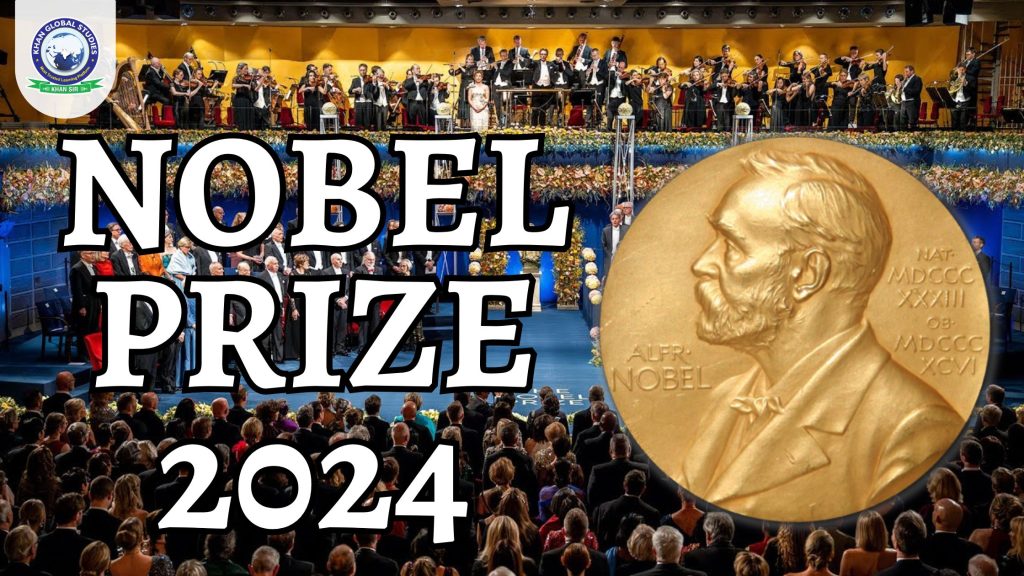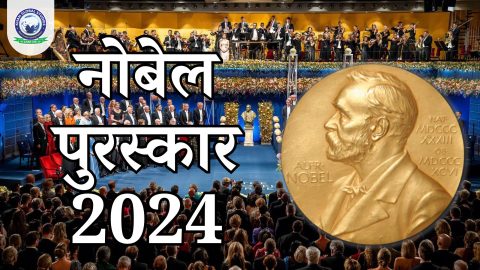The Nobel Prize is one of the most prestigious and globally recognized awards. It celebrates remarkable achievements in various fields, including physics, chemistry, medicine, literature, peace and economic sciences. The award symbolizes innovation, hard work and dedication to the progress of humanity. Founded by Swedish scientist and inventor Alfred Nobel, the award has become a symbol of excellence in scientific, humanitarian and artistic endeavours.
Origin of the Nobel Prize
Alfred Nobel was born on October 21, 1833, in Stockholm, Sweden. He was a chemist, engineer and inventor, best known for inventing dynamite. While Nobel’s inventions brought him immense wealth, they also led to unintended consequences, as many of his creations were used in warfare. Nobel’s concern about his legacy, especially after a French newspaper mistakenly published an obituary for him titled “The Merchant of Death,” forced him to consider how he would be remembered. As a result, he made a decision that changed the world forever.
In his will, Nobel left most of his wealth – 94% of his estate (about 31 million SEK) – to establish the Nobel Prizes. He wanted to honour individuals who made outstanding contributions in the fields of physics, chemistry, medicine, literature, and peace. The Nobel Foundation, established in 1900, was responsible for managing the funds and organizing the award ceremonies.
Nobel Prize Categories
The Nobel Prizes are awarded annually in six fields:
Physics
The Nobel Prize in Physics is awarded to individuals who have made groundbreaking discoveries in the field of physics. This includes discoveries in quantum mechanics, astronomy, optics, and more. Some of the most famous recipients include Albert Einstein for his work on the photoelectric effect and Richard Feynman for his contributions to quantum electrodynamics.
Chemistry
The Nobel Prize in Chemistry recognizes important discoveries that have advanced our understanding of chemical processes. Alfred Nobel, being a chemist himself, had a deep connection to this category. Previous winners include Marie Curie for her pioneering work on radioactivity and Ahmed Zewail for his research on femtochemistry.
Medicine (Physiology)
The Nobel Prize in Physiology or Medicine is awarded to those who have made extraordinary contributions to the field of health and medicine. This includes research in genetics, immunology and the development of life-saving treatments. Alexander Fleming, who discovered penicillin, and James Watson and Francis Crick, who unveiled the structure of DNA, are notable award winners.
Literature
The Nobel Prize in Literature honours authors, poets and playwrights whose work has had a profound impact on the world. Literature is considered a mirror of society, reflecting its triumphs and failures. Writers such as Gabriel Garcia Marquez, Ernest Hemingway and Rabindranath Tagore have been recipients for their timeless contributions.
Peace
Perhaps the most famous of all the Nobel Prizes, the Nobel Peace Prize is awarded to individuals or organizations who have worked tirelessly to promote peace and end conflict. The prize is awarded in Oslo, Norway, while all other prizes are distributed in Stockholm, Sweden. Recipients have included Martin Luther King Jr., Nelson Mandela, and organizations such as the United Nations and Doctors Without Borders.
Economic Sciences
Although not originally included in Nobel’s will, the Sveriges Riksbank Prize in Economic Sciences in Memory of Alfred Nobel was established in 1968. The prize is awarded to those who have made significant contributions to economics, such as Amartya Sen for his work on welfare economics and Paul Krugman for his analysis of trade patterns and the location of economic activity.
Nobel Prize Selection Process
The selection process for each Nobel Prize is rigorous and meticulous. Each field has its special committee that selects the recipients. The process includes:
- Nomination: Eligible candidates are nominated by academics, past prize winners, and experts in each field.
- Research and Review: The contributions of the nominees are thoroughly reviewed by experts in the field.
- Judging: The final decision is taken after several rounds of deliberations by the respective committees.
- Award Ceremony: The winners are announced and felicitated at a grand ceremony on December 10, the anniversary of Alfred Nobel’s death. Each laureate receives a gold medal, a diploma, and a cash prize.
Notable Nobel Prize Winners from India
India has had many individuals who have made their mark on the world stage through their contributions in various fields:
- Rabindranath Tagore (1913): The first Asian to receive the Nobel Prize in Literature for his poetry collection Gitanjali.
- C.V. Raman (1930): Awarded the Nobel Prize in Physics for his groundbreaking work on the scattering of light, known as the Raman effect.
- Mother Teresa (1979): Awarded the Nobel Peace Prize for her selfless work in caring for the poor and sick in Calcutta.
- Amartya Sen (1998): Recipient of the Nobel Memorial Prize in Economic Sciences for his contributions to welfare economics.
- Kailash Satyarthi (2014): Awarded the Nobel Peace Prize for his activism against child labour and for children’s rights.
Nobel Foundation and its Role
The Nobel Foundation was established to manage Alfred Nobel’s fortune and ensure that the prizes are awarded under his wishes. Over time, the Foundation has become a globally respected institution. It manages the financial assets of Nobel laureates, ensuring the sustainability of the prizes for generations to come. The Foundation’s investments are diverse, including assets in stocks, bonds, real estate, and hedge funds. It oversees the distribution of the prize money, ensuring that each winner receives not only recognition but also financial support to continue their work.
Conclusion
The Nobel Prize is a symbol of excellence, innovation, and commitment to the betterment of humanity. It recognizes individuals and organizations that have pushed the boundaries of knowledge and peace. Whether it is the discovery of a new scientific theory, a soul-touching literary work, or an effort to bring about global harmony, the Nobel Prize remains the highest honour in their respective fields.



